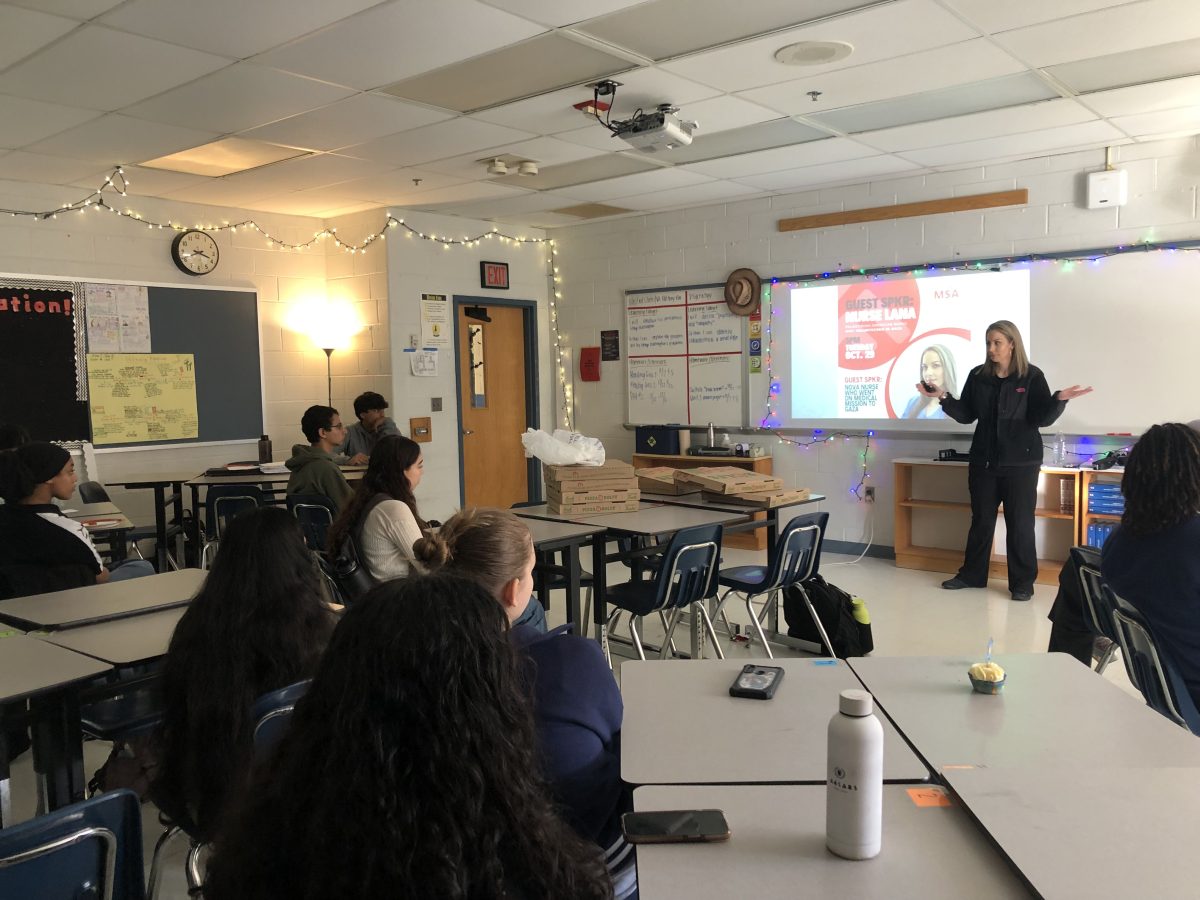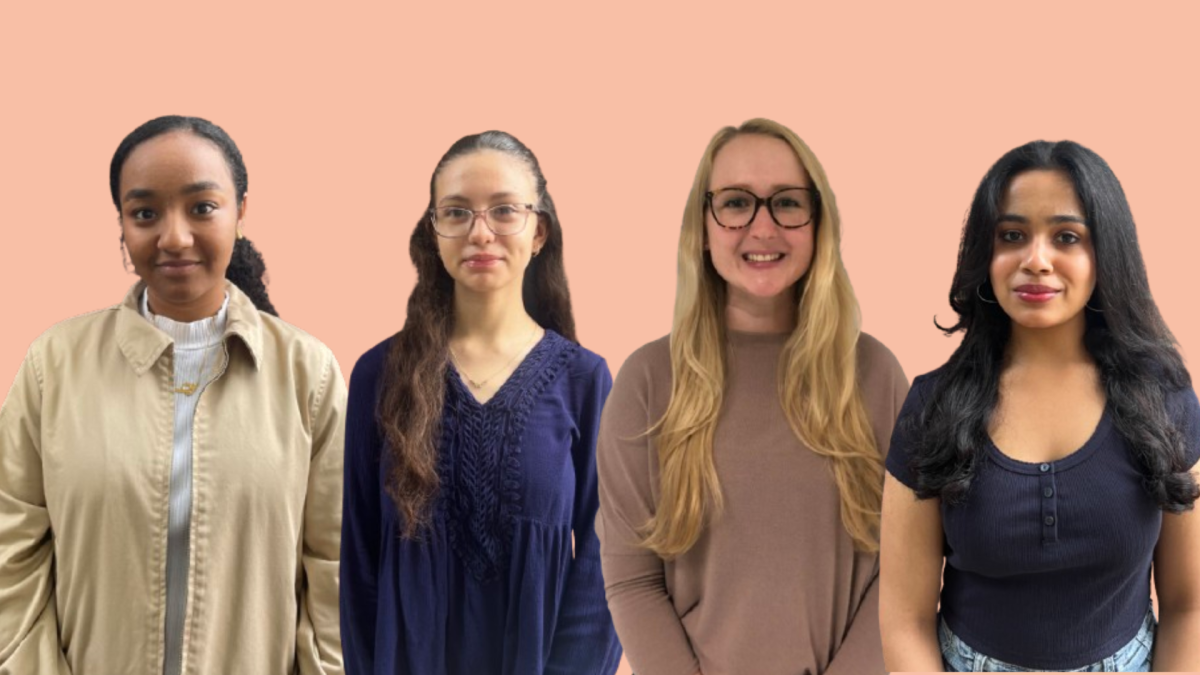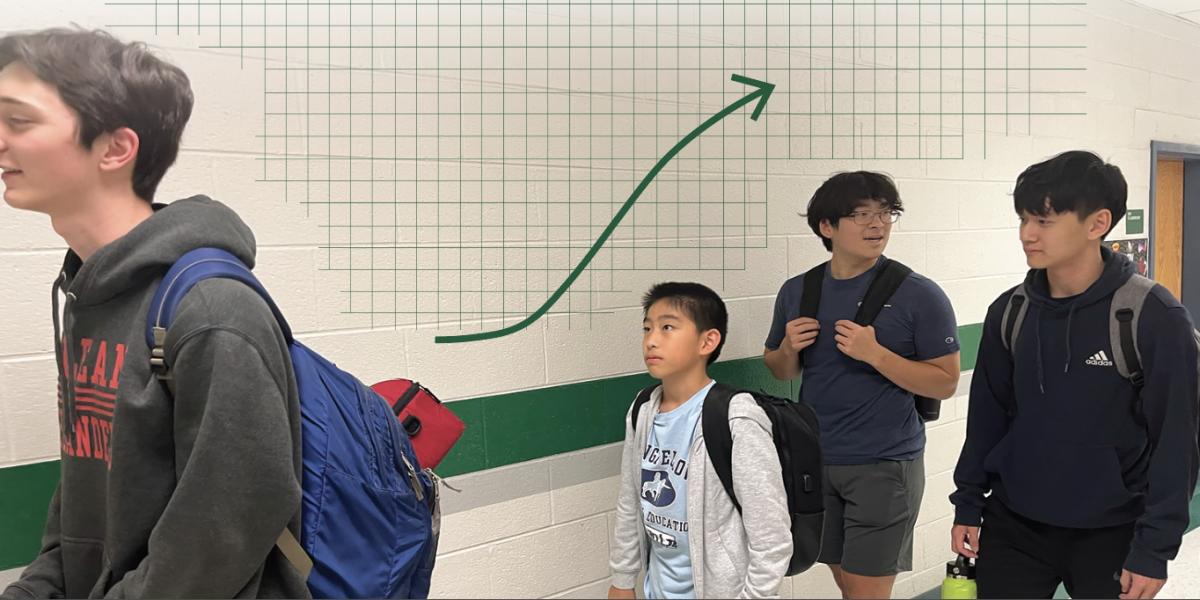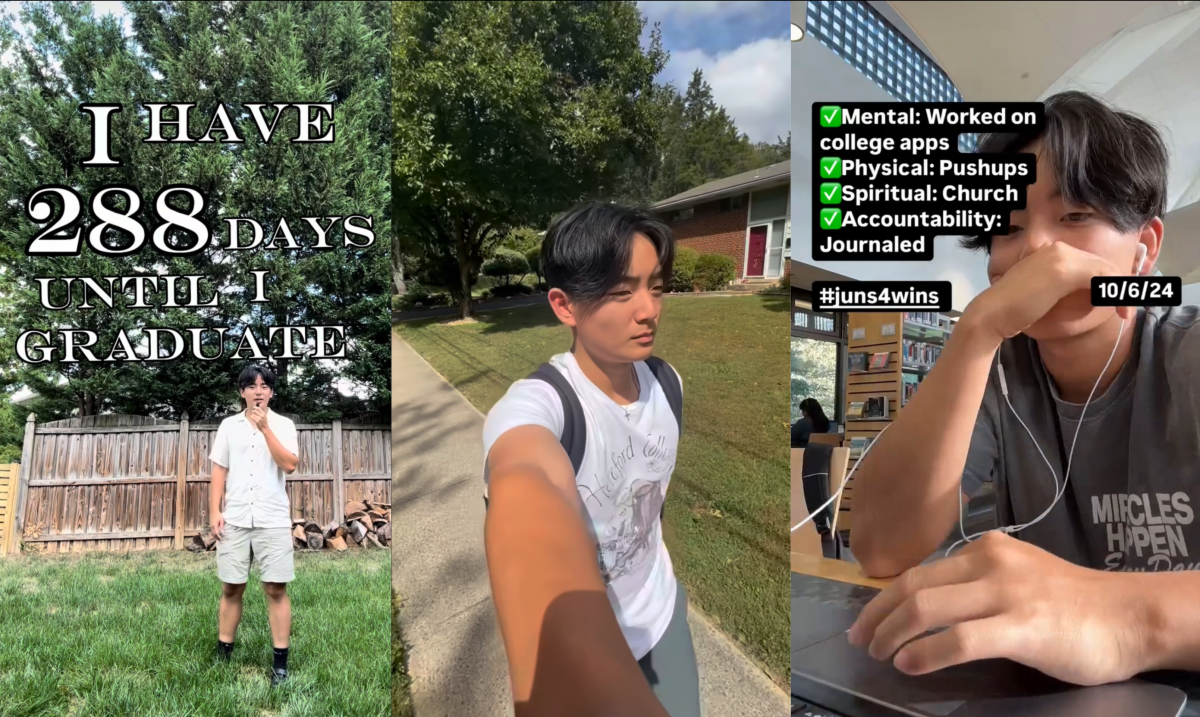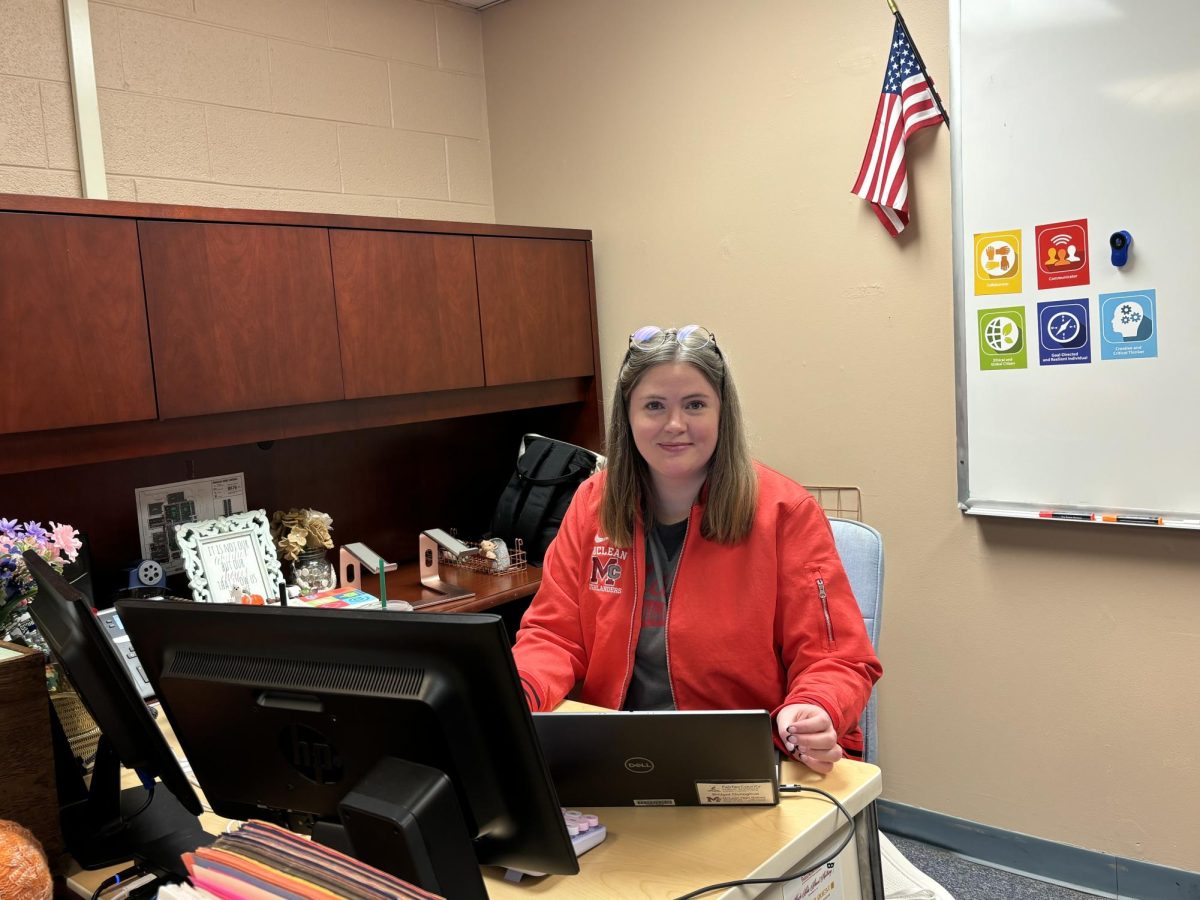Since the start of the school year, 175 students have transferred to McLean, with an estimated one fifth of them transferring from overseas. Without being exposed to the general environment of American public schools, foreign students often have varying notions about public school education in the states.
Junior Simon Kroger transferred to McLean the past summer from the Lycee Clemence Royer School, in the city of Fonsorbes, France. Kroger, who will only stay until the end of the academic year, had a number of pre-existing perceptions of American public schools he had before arriving.
“In France and […] for all European students, we have an image of American high schools being so much better than European ones,” Kroger said.
He particularly emphasized American extracurriculars, sports, school spirit, and student life rather than academics.
“Most people think about American high schools only being composed of giant gyms, football fields with an incredible atmosphere, band, cheerleaders, the crowds–[whereas] in Europe schools are mostly about learning and not all the extracurricular activities that you can attend here such as sports or clubs,” Kroeger said. “Before arriving, I thought all [of these ideas were] a little exaggerated by social media, but upon arriving here, I discovered that most of the stereotypes were [accurate]”.
He also shared his surprise for the carefree nature of American schools regarding religion, and the significant difference from French schools, which observe a heavy brand of secularism known as ‘laïcité.’
“In France both [education and religion] are strictly separated,” Kroeger said.
Margaret Isozaki is a junior who transferred to McLean. She moved to the United States in April 2023 from the Shoei Girls Senior and Junior High School in Japan. Without having consumed much American media, her expectations generally developed from hearing about the country from those close to her. She expressed her cultural shock for events such as pep rallies, football games, and other school events considered stereotypically “American,” and the common theme of an intense pride for the nation emulated by such events.
“There’s a lot of patriotism compared to Japanese high schools,” Isozaki said.
Transfer student Eliana Martin is an American citizen, but has resided overseas for significant portions of her life. Having returned to the United States from the Berlin Brandenburg International School, she had already expected this deep American patriotism to be ingrained in school culture, prior to arriving. She explained the general international student perception of public schools in America.
“The idea [of] American schools, from kids overseas is that you only learn about America and nothing else,” Martin said.
The topic of patriotism was not the only item noticed by the foreign transfer students. The students’ worries about America stemmed from the oftentimes darker depiction of American public High Schools in news and other forms of media.
“In my head I had [envisioned] a crazy school environment where there was excessive drug use in the halls, like Euphoria, [with] frequent gun violence and teen pregnancy,” said Scarlett Lee, who transferred from a public school in China this school year.
Yet, Lee shared her quick realization of how inaccurate these representations were.
“I arrived [at McLean] and realized it was completely different,” Lee said. “The teachers are really nice, especially when you get lost in the halls, and there’s so much freedom in the classes with chewing gum, and hall passes.”
Students also expressed comically contradictory views on American school food.
“The school food is so much better here than in China,” said Lee.
Senior Mykyta Shulha transferred from a Ukrainian school to McLean last year, and withheld a different opinion on the cafeteria lunches.
“One of the [culture shocks] was the food. School lunches here are alright, but I prefer more real food”, Shulha said.
Students from overseas also reported they glorified the idea of American living prior to moving. In recent years, amongst students overseas, there has been a popularization of the idealized United States high school experience, coined by the term “Americacore”.
“I was excited for traditionally ‘American’ [events like] prom [and] homecoming,” Lee said.
Romanticism of the high school experience can extend anywhere from typical American-hallmark events, to mundane aspects of daily life that are often overlooked.
“The highways and lockers are as in movies, [and] the atmosphere around American football [games is] incredible” said Kroeger.
Overall, foreign transfer students expressed content and excitement in adjusting to the American public school system.
“I thought the student body [would be] diverse and have people with many backgrounds—which matched up with the reality”, said Isozaki. “I think McLean is used to accepting international students, the student services understand”, said Isozaki.
Despite this, students reported the difficulty of distinguishing foreign schools from public ones.
“To be honest, I didn’t really know what to expect, or what I would see, because I’ve only been in Ukrainian school before. I can’t say that schools here are better or worse than back home, they’re too different, […] but [I’ve been able to] adapt to most things pretty well”, said Shulha.
Some students also indicated that they hadn’t experienced any significant culture shocks, and have adapted to the new school environment with relative ease.
“I don’t feel I have experienced a big cultural shock so far, that’s probably due to the fact that people are really nice and friendly. I could make friends and talk with a lot of welcoming students,” said Kroeger.
Similarly, Lee also shared her enjoyment of adjusting to McLean.
“I’ve enjoyed it so far, it hasn’t been too bad getting used to American public school,” said Lee. “There were no heartthrobs though.”


